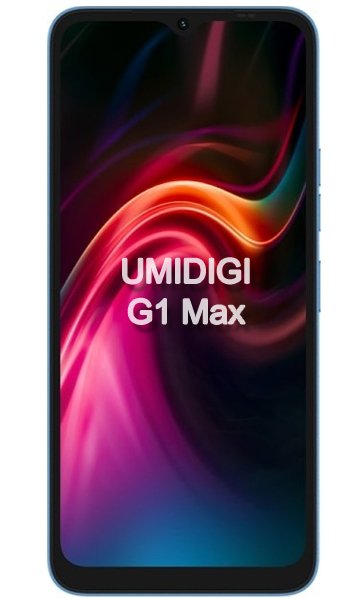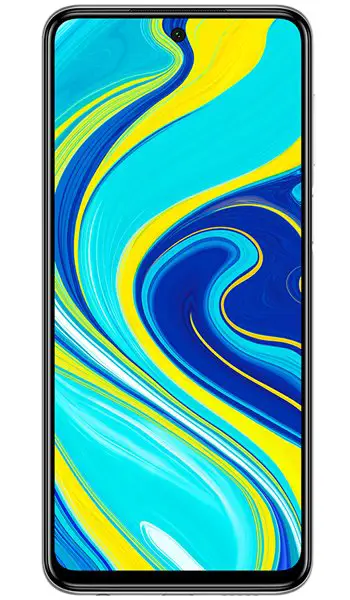Umidigi G1 Max vs Xiaomi Redmi Note 9 Pro Comparison and Differences
Smartphone 1

Umidigi G1 Max
Smartphone 2

Xiaomi Redmi Note 9 Pro
Smartphone 3
Umidigi G1 Max or Xiaomi Redmi Note 9 Pro Specs Comparison
or
 Common specs
Common specs
| Brand and model | Umidigi G1 Max | Xiaomi Redmi Note 9 Pro | |
| Rating | (+0) | (+0) | |
| Release date | October, 2022 | 2020, March 12 | |
| Dimensions (HxWxD) | 163.9 x 75.7 x 8.8 mm | 6.45 x 6.45 x 2.98 in | 165.8 x 76.7 x 8.8 mm | 6.53 x 6.53 x 3.02 in | |
| Weight | 192 g | 6.77 oz | 209 g | 7.37 oz | |
| Body Build | Glass front (Gorilla Glass 5), glass back (Gorilla Glass 5), plastic frame | ||
| Case | buy from Amazon | buy from Amazon | |
| Colors | Starry Black, Galaxy Blue | Tropical Green, Glacier White, Interstellar Gray | |
| Battery | 5150 mAh, Lithium, non-removable | 5020 mAh, Non-removable Li-Po | |
| Approximate price | $ 250 | ||
| Check price | from Amazon | from Amazon |
 Screen
Screen
| Technology | LCD | IPS LCD | |
| Touchscreen | capacitive touchscreen | capacitive touchscreen | |
| Display colors | 16M | 16M | |
| Screen size | 6.52" in | 6.67" in | |
| Screen area | 102.6 cm2 | 107.4 cm2 | |
| Screen format | 20:9 (height:width) | 20:9 (height:width) | |
| Screen to body ratio | 82.7% | 84.5% | |
| Screen resolution | 720 x 1600 px | 1080 x 2400 px | |
| Screen PPI /points per inch/ | 269 PPI | 395 PPI | |
| Screen protection | Scratch resistant | Corning Gorilla Glass 5 | |
| Screen protector | buy from Amazon | buy from Amazon |
 Camera and Video
Camera and Video
| Rear camera, main | 50 MP, Dual | 64 MP, Quad | |
| Camera specs | -50 MP, f/1.8, (wide), AF -2 MP, f/2.4, (depth) |
-64 MP, f/1.9, 26mm (wide), 1/1.72", 0.8µm, PDAF -8 MP, f/2.2, 119˚ (ultrawide), 1/4.0", 1.12µm -5 MP, f/2.4, (macro), AF -2 MP, f/2.4, (depth) |
|
| Functions | Dual-LED flash, HDR, panorama | LED flash, HDR, panorama | |
| Video | 1080p@30fps | 4K@30fps, 1080p@30/60/120fps, 720p@960fps, gyro-EIS | |
| Front camera, selfie | 8 MP, Single | 16 MP, Single | |
| Specifications | 8 MP, f/2.2, (wide) | 16 MP, f/2.5, (wide), 1/3.06" 1.0µm | |
| Functions | HDR, panorama | ||
| Video | 720p@30fps | 1080p@30fps |
 Performance
Performance
| Operating system - OS | Android 12 Snow Cone | Android 10.0; MIUI 11 | |
| Chipset | - Unisoc T610 (12 nm) | - Qualcomm SM7125 Snapdragon 720G (8 nm) | |
| CPU | - Octa-core (2x1.8 GHz Cortex-A75 & 6x1.8 GHz Cortex-A55) | - Octa-core (2x2.3 GHz Kryo 465 Gold & 6x1.8 GHz Kryo 465 Silver) | |
| GPU | Mali-G52 MP2 | Adreno 618 | |
| External memory | microSDXC (uses shared SIM slot) | microSDXC (dedicated slot) | |
| Internal memory | 128GB 6GB RAM | 64GB 4GB RAM, 128GB 6GB RAM |
 Benchmark
Benchmark
| Antutu 10 Total | 392189 | ||
| Antutu 10 CPU | 140436 | ||
| Antutu 10 GPU | 74281 | ||
| Antutu 10 Mem | 74047 | ||
| Antutu 10 UX | 140436 | ||
| Antutu 9 Total | 166005 | 324569 | |
| Antutu 8 Total | 278272 | ||
| GeekBench 6 Single Core | 730 | ||
| GeekBench 6 Multi Core | 1755 | ||
| GeekBench 6 OpenCL | 1161 | ||
| GeekBench 6 Vulkan | 522 | ||
| GeekBench 5 Single Core | 372 | 557 | |
| GeekBench 5 Multi-Core | 1404 | 1237 |
 Communication and Connectivity
Communication and Connectivity
| SIM card | Hybrid Dual SIM (Nano-SIM, dual stand-by) | Dual SIM (Nano-SIM, dual stand-by) | |
| Network | GSM / HSPA / LTE | GSM / HSPA / LTE | |
| Bands | -2G - GSM 850 / 900 / 1800 / 1900 - SIM 1 & SIM 2 -3G - HSDPA 850 / 900 / 1700(AWS) / 1900 / 2100 -4G - 1, 2, 3, 4, 5, 7, 8, 12, 17, 20, 28, 38, 40, 41 |
-2G - GSM 850 / 900 / 1800 / 1900 - SIM 1 & SIM 2 -3G - HSDPA 850 / 900 / 1900 / 2100 -4G - LTE band 1(2100), 3(1800), 5(850), 8(900), 40(2300), 41(2500) |
|
| Speed | HSPA, LTE | HSPA 42.2/5.76 Mbps, LTE-A | |
| GPRS | Yes | Yes | |
| Edge | Yes | Yes | |
| Wi-Fi | Wi-Fi 802.11 a/b/g/n/ac, dual-band, Wi-Fi Direct | Wi-Fi 802.11 a/b/g/n/ac, dual-band, Wi-Fi Direct, hotspot | |
| GPS | GPS, GALILEO, GLONASS, BDS | Yes, with A-GPS, GLONASS, GALILEO, BDS, NavIC | |
| NFC | No | Yes | |
| USB | USB Type-C, OTG | 2.0, Type-C 1.0 reversible connector, USB On-The-Go | |
| Bluetooth | 5.0, A2DP, LE | 5.0, A2DP, LE | |
| Harmful irradiation |
SAR - 0.87 W/kg (head) 0.71 W/kg (body) SAR EU - 0.66 W/kg (head) 1.02 W/kg (body) |
 Music and Audio
Music and Audio
| Radio | No | FM radio, recording | |
| Headphone jack | Yes | Yes |
 Other features
Other features
| Sensors | - Fingerprint (side-mounted), accelerometer, proximity , Infrared port | - Fingerprint (side-mounted), accelerometer, gyro, proximity, compass , Infrared port | |
| Other extras |
- 10W Fast charging |
- Fast charging 30W - Splash-proof |
Reviews and Opinions on Umidigi G1 Max and Xiaomi Redmi Note 9 Pro
If you had to recommend one of these phones to a friend, which one would it be and why? Share your arguments using the Add Opinion button!
